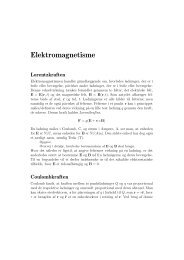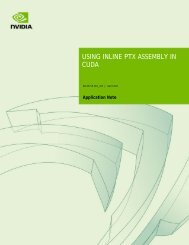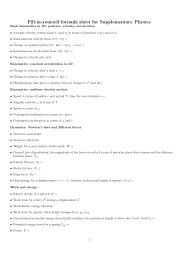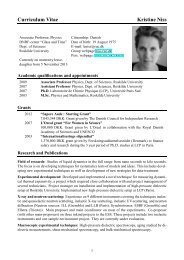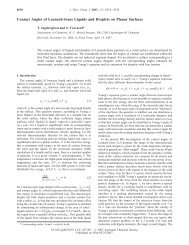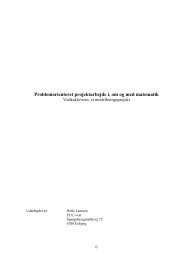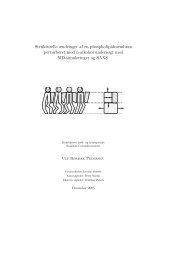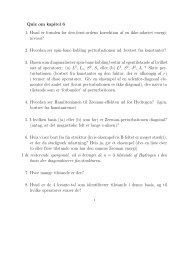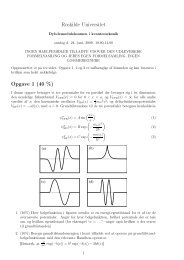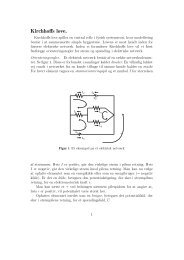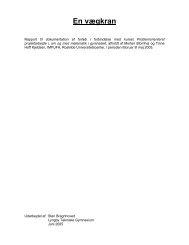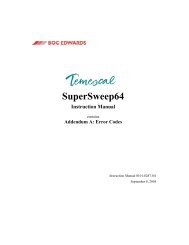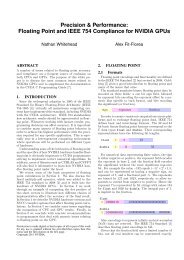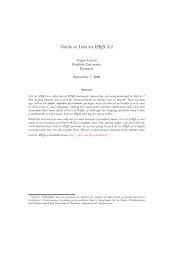Ph.D. thesis (pdf) - dirac
Ph.D. thesis (pdf) - dirac
Ph.D. thesis (pdf) - dirac
You also want an ePaper? Increase the reach of your titles
YUMPU automatically turns print PDFs into web optimized ePapers that Google loves.
Chapter 9<br />
Summarizing discussion<br />
When a liquid is cooled along an isobar the density increases and the temperature<br />
decreases. These two effects both contribute to the slowing down of the dynamics<br />
and the isobaric fragility is a combined measure of the two effects.<br />
It has been found empirically over the last five years that the isochoric fragility, which<br />
gives a measure of the effect of temperature alone, is independent of density for a<br />
large group of different systems, while the isobaric fragility changes when evaluated<br />
at higher density. This change in isobaric fragility with pressure is therefore related<br />
to the change in the effect of density on the relaxation time.<br />
The effect of density on the change of relaxation time upon cooling along an isobar<br />
is governed by two things. First the thermal expansivity α P , or α P T = d log ρ<br />
d log T , which<br />
measures how much density changes as a function of temperature, and secondly a<br />
term that measures how sensitive the relaxation time is to changes in density. The<br />
thermal expansivity decreases when pressure is increased. Thus the volume does not<br />
change very much as a function of temperature along high pressure isobars and a<br />
high pressure isobaric experiment is consequently closer to being isochoric. Or put<br />
in other words, the relative effect of density on the viscous slowing down is smaller<br />
at high pressure because density itself changes less as a function of temperature at<br />
high pressure. It is due to this effect that isobaric fragility most commonly decreases<br />
with increasing pressure. The change in fragility with increasing pressure is therefore<br />
due to a change in the thermodynamics rather than to a pressure induced change in<br />
the response to temperature changes. The pure effect of temperature as measured<br />
by the isochoric fragility is found to be independent of density, and in this sense to<br />
be intrinsic to the liquid. Based on these observation we conclude that a property<br />
which is related to the “pure” effect of temperature on the relaxation time, should<br />
correlate to the isochoric fragility (when comparing systems), and that it should<br />
171



